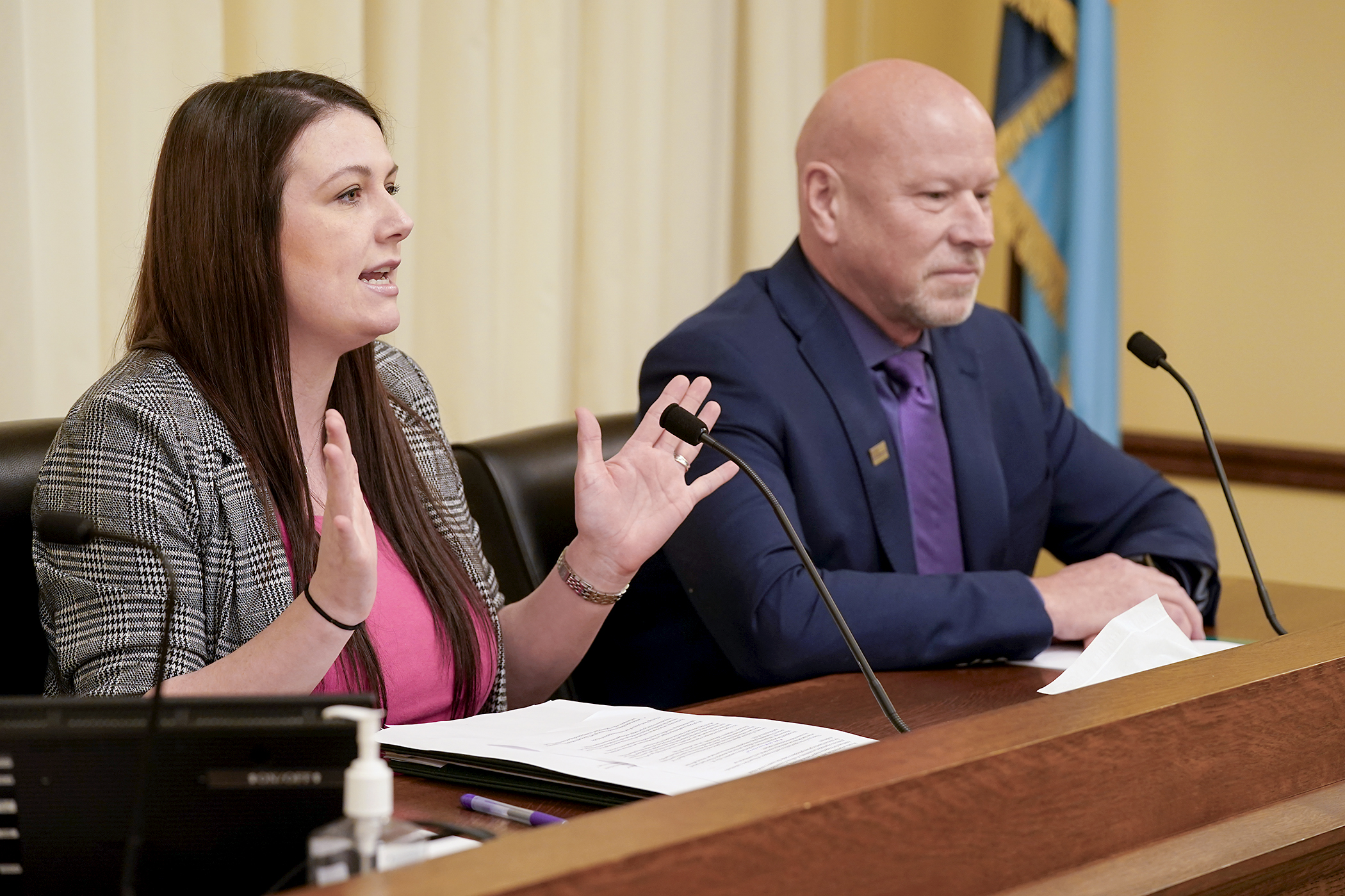Budget surpluses would be returned to taxpayers under proposed constitutional amendment
DISCLAIMER: On Jan. 24, 2025, the Minnesota Supreme Court held that 68 members are necessary to constitute a quorum of the House. This webpage may reflect proceedings that occurred before that decision was issued and are no longer active. See Simon v. Demuth, No. A25-0066 (Minn. Jan. 24, 2025) (consolidated with Hortman et al. v. Demuth et al., No. A25-0068).
“Give it back” was a popular refrain on the campaign trail in recent years when projections showed the state of Minnesota running a sometimes sizable budget surplus. But counterarguments often said that such surpluses afforded opportunities to reinvest in areas that had previously suffered from budget shortfalls. And then there were those in the middle, who believed saving for a rainy day would be prudent.
But what if the state had no choice but to give the bulk of future surpluses back to taxpayers? To build such a provision into the state’s constitution would require a constitutional amendment. And that would only be possible via a statewide referendum.
 RaeAnna Lee with Americans for Prosperity testifies before the House Taxes Committee Thursday in support of HF4. Sponsored by Rep. Wayne Johnson, it could require part of a projected budget surplus be returned to taxpayers. (Photo by Michele Jokinen)
RaeAnna Lee with Americans for Prosperity testifies before the House Taxes Committee Thursday in support of HF4. Sponsored by Rep. Wayne Johnson, it could require part of a projected budget surplus be returned to taxpayers. (Photo by Michele Jokinen)On Thursday, that process was set in motion by Rep. Wayne Johnson (R-Cottage Grove). He sponsors HF4, which proposes a constitutional amendment appear on the ballot in 2026 that would require a portion of projected future budget surpluses be returned to state taxpayers.
The House Taxes Committee approved the bill, as amended, and forwarded it to the House Ways and Means Committee.
“If we overpay, we expect to get a refund,” Johnson said. “What happened with the surplus that was already there? … Depending upon the day you turned on your computer or you read the news, we’re getting $2,000 back, we’re getting $1,200 back, and then, all of a sudden, it became $200 back for a select few. This would actually put in the constitution and codify that that doesn’t happen. The money’s there, the money goes back to the people who paid it, whether it’s through income tax or property tax.”
If the constitutional amendment were to meet voter approval, a tax relief account would be funded using money from a projected surplus. The surplus would be equal to the amount by which projected revenues exceed 105% of projected expenditures, as determined by the November budget forecast.
The Legislature would then be required to appropriate money from the proposed new account each biennium for income or property tax refunds or to offset income or property tax reductions. Refunds or tax reductions that reduce a taxpayer’s liability for tax below zero would not be allowed.
While the bill was heartily endorsed by RaeAnna Lee, legislative and coalitions director for Americans for Prosperity, such was not the case with Nan Madden, director of the Minnesota Budget Project, a program of the Minnesota Council of Nonprofits.
“A constitutional amendment that puts artificial limits on revenues or spending weakens the ability of Minnesotans to influence the tax and budget decisions that impact their lives,” Madden said. “It instead turns important decisions over to an arbitrary formula that does not respond to current conditions, changing demographics, emergencies or the priorities of your constituents. … This proposal doesn’t give you more tools as policymakers. It instead ties your hands.”
“By some it’s considered tying the hands of government,” said Rep. Chris Swedzinski (R-Ghent). “I think getting politicians’ hands out of people’s pockets is a good thing.”
Related Articles
Search Session Daily
Advanced Search OptionsPriority Dailies
Speaker Emerita Melissa Hortman, husband killed in attack
By HPIS Staff House Speaker Emerita Melissa Hortman (DFL-Brooklyn Park) and her husband, Mark, were fatally shot in their home early Saturday morning.
Gov. Tim Walz announced the news dur...
House Speaker Emerita Melissa Hortman (DFL-Brooklyn Park) and her husband, Mark, were fatally shot in their home early Saturday morning.
Gov. Tim Walz announced the news dur...
Lawmakers deliver budget bills to governor's desk in one-day special session
By Mike Cook About that talk of needing all 21 hours left in a legislative day to complete a special session?
House members were more than up to the challenge Monday. Beginning at 10 a.m...
About that talk of needing all 21 hours left in a legislative day to complete a special session?
House members were more than up to the challenge Monday. Beginning at 10 a.m...